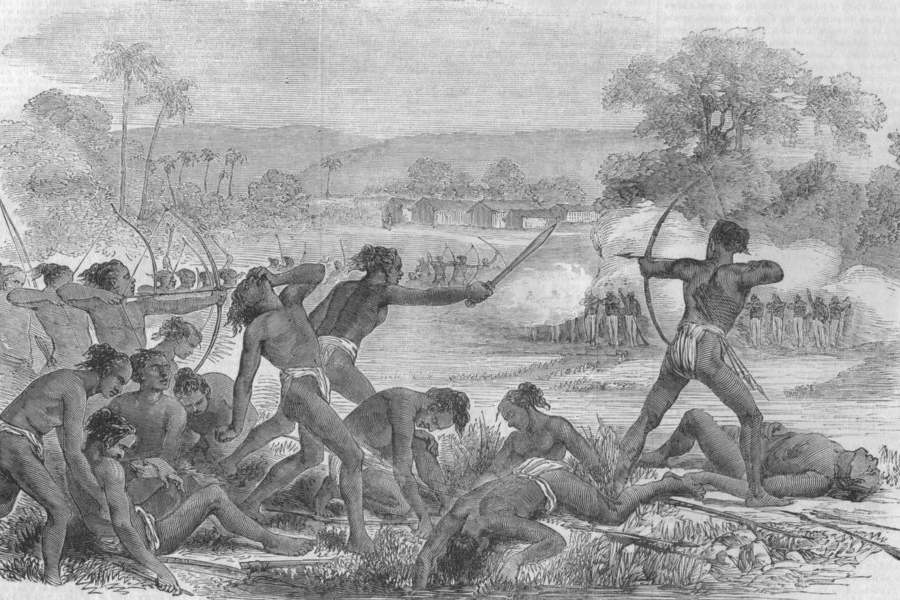On this day, about 10,000 Santals had gathered in Bhognadih village, in present-day Jharkhand, and sent out parwanas, or orders, to East India Company officials and zamindars, asking them to reply within a fortnight.
This was the beginning of the Santal Uprising, which many feel should be considered the first war of Independence in British India. The Santals, settled in Damin-i-koh, which later came to be known as Santal Pargana, were protesting against their severe exploitation by the zamindars, money-lenders and the colonial authorities.
According to Santal lore, Thakurjiv, the revered spirit of the Santals, appeared before brothers Sidho and Kanhu, and asked them to protest. The Santals, growing in number, and joined by the Bhuiyan and Paharia tribes and lower caste communities, began to march to Calcutta. The uprising was crushed by the British forces reinforced by the Nawab of Bengal who sent war elephants. But the courage of the Santals was not forgotten.
After the uprising, the British passed the Santhal Parganas Tenancy Act, 1876, to protect tribals from exploitation.
For suggestions on dates/events mail us at: yesterdate@abp.in











